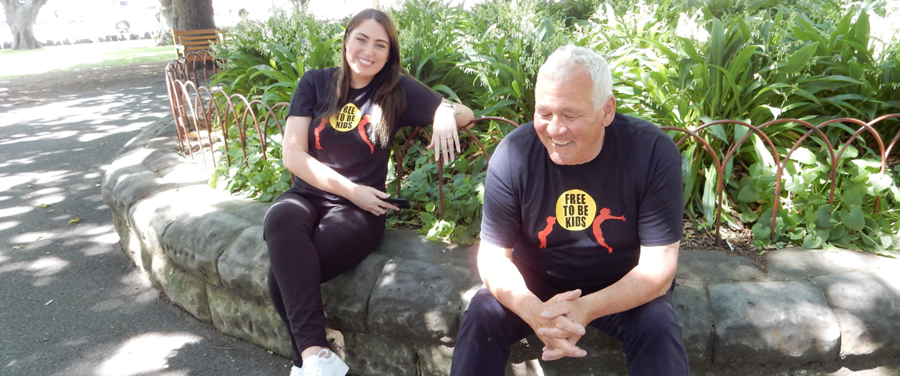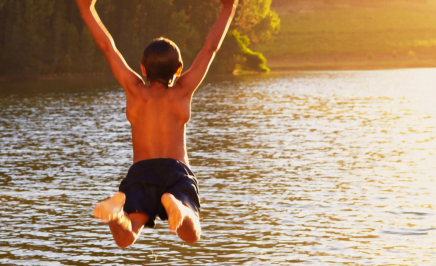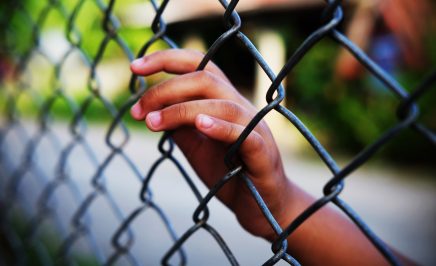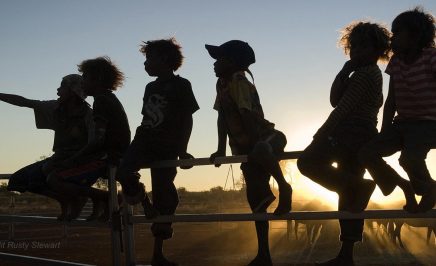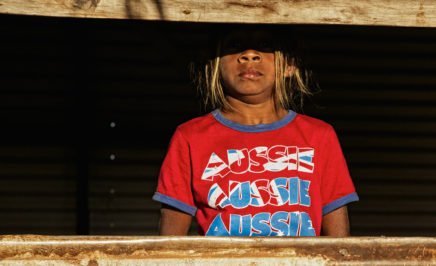Kacey Teerman is a Gomeroi woman and a Indigenous Rights Campaigner for Amnesty International Australia.
Today I write from Mpartwe country, the traditional lands of the Arrernte people – also known as Alice Springs.
I’m here with Rodney, a Palawa man and Amnesty’s Indigenous Rights Advisor, and together we’re conducting community consultation to ensure that our campaigns fundamentally reflect the priorities of First Nations people – especially Aboriginal and Torres Strait Islander children, their families and communities.
Raise the age
You may have learned recently that the Australian Capital Territory (ACT) finally committed to raising the age of criminal responsibility to 14 years old. This is a big milestone, following a long campaign by activists, and compassionate people like you.
Sadly, this welcomed news still comes with a catch: the legislation tabled will raise the age from 10 to 12 years old, eventually raising the age to 14 — but not until July 2025.
Chief Minister Andrew Barr and Attorney-General Shane Rattenbury had the opportunity to protect the human rights and livelihoods of some of the ACT’s most marginalised kids. Instead, they have once again ignored all of the evidence – keeping kids locked behind bars, and causing irreparable harm.
Justice reinvestment into diversion programs
One only has to look to Banksia Hill Detention Centre in Western Australia (WA), to see exactly how extreme this harm can be. Earlier this month, children detained at Banksia Hill were met with extreme force and violence, from a heavily armed special forces unit.
We’ve been calling for the closure of this dangerous facility since 2017 – and we will continue to, until the WA government diverts the millions of dollars spent on maintaining detention centres like Banksia Hill into Indigenous-led diversion programs that actually work.
On a more hopeful note, the Federal government has dedicated $81.5 million for justice reinvestment. This was announced in its first Budget last October, and again in the May 2023 Budget – where an additional $10 million was announced.
Diversion programs are proven to address the underlying causes of problematic behaviour in children, in order to improve it – diverting them away from the criminal justice system.
The first funding is intended to go to 30 communities across the country, and the second allocation of funding will go to Central Australia to support diversion programs. The Northern Territory government’s own research determined that 76% of kids who complete diversion programs, don’t reoffend within 12 months. Investing in these programs can change lives.
What’s next?
We will continue to hold the government accountable to these commitments – including transparency of the communities and programs selected, and most importantly, confirmation that they are Indigenous-led.
On our travels over the past 5 months from Lutruwita country (Tasmania) to Larrakia country (Darwin), and Whadjuk Noongar Boodja (Perth) – Rodney and I have met with the incredible First Nations activists and communities who are doing this crucial work on the ground.
We are committed to ensuring that our work at Amnesty is informed by their priorities and needs. Thank you for your ongoing support.
As part of Amnesty’s 2025 Vision, we are committed to working with First Nations communities, partners and allies to secure justice and end the overrepresentation of young people in prisons within a generation. Learn more about our Indigenous Rights work.
